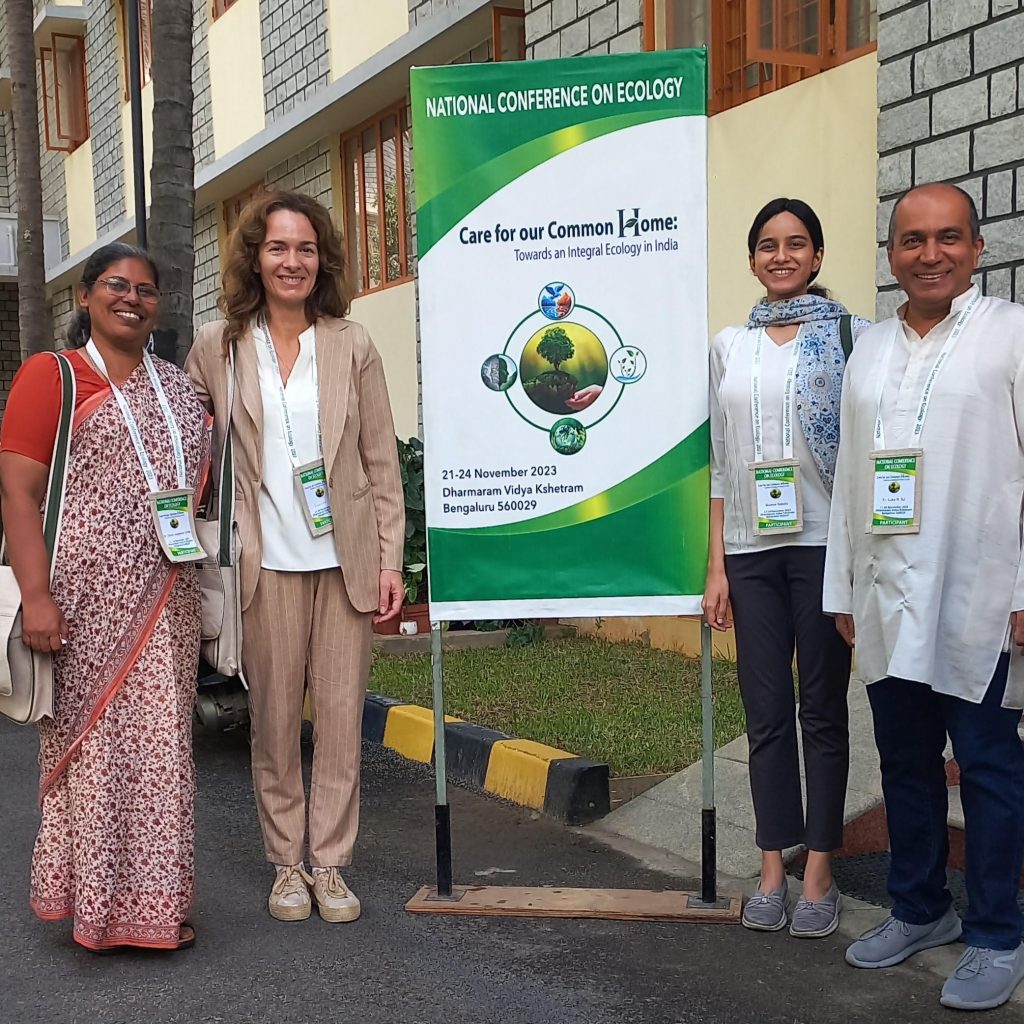About Shawna Nemesia Rebello
Shawna Nemesia Rebello is a dedicated member of the Laudato Si’ Action Platform working groups, representing both educational institutions and dioceses. Based in India, Shawna brings a decade of experience in ecological ministry, from the diocesan level and extending to national and international engagements. Shawna’s involvement exemplifies the global and collaborative spirit of the working group members dedicated to the platform’s growth.
Can you share about your background and how you first became involved with the Laudato Si’ Action Platform?
I’ve collaborated with Bishop Allwyn D’Silva in the ecological ministry for a decade, at the diocese level and advancing to national and international scopes. I hold two post-graduate degrees in Environmental Science and Health, Safety, and Environment, which led Bishop Allwyn to assign me to adapt the Laudato Si’ Goals to our local diocesan contexts in April 2021. My involvement deepened when Fr Savio Silveira SDB invited me to represent the Don Bosco Green Alliance in the Schools sector, broadening my contribution to include educational institutions and dioceses.
How do you view your role within the platform, and what aspects are most meaningful to you?
My role is one of significant responsibility, especially as one of the few participants from a plural and multifaith society in the Global South. I bring our unique challenges to the discussions, which are crucial for the platform’s broader mission. For example, in India, the government dictates our investment options, limiting our approach to ecological economics. Additionally, language and digital barriers make it challenging to dedicate competent personnel for online engagements with the platform.

Shawna Rebello smiles at a national conference in 2023 with Sr Shimi (Executive Secretary of the CBCI Office for Environment and Climate Change), Dr Francesca from the Dicastery for Promoting Integral Human Development and Fr Luke (Head – Archdiocesan Office for Environment, Mumbai).
How has the Laudato Si’ Action Platform evolved since you began?
Since my involvement, the platform has adopted a more centralized approach, though participation in the working groups can vary. We’ve shifted towards a synodal operation, adapting tools like making self-assessment optional due to challenges in data verification. This adaptability, influenced significantly by voices from the Global South, has been a notable change, evolving the goal from Community Engagement to Community Resilience and Empowerment.
What has been the most inspiring or rewarding experience for you on this platform?
The ongoing dialogue with global participants, from the Dicastery for Integral Human Development to grassroots members, continues to be deeply enriching. We join meetings at difficult times – while commuting, deep into the night, really early in the morning, and so on – but most of us make it! How can this commitment and dedication from everyone actively participating on the platform be anything but inspiring? This collective commitment underpins my motivation and enthusiasm for our mission.
Looking forward, what excites you about the future direction of the platform?
I’m excited about the platform’s focus on fostering a community. The shift towards encouraging interaction, sharing, and mutual learning among participants promises a more substantial impact in achieving ecological conversion to address the planetary crisis. While data is essential, the sense of community and shared commitment is likely to be our most significant influence.
Being of the science background, I do not diminish or undervalue the necessity of figures and data, the need to authenticate real emission reductions, and so on. However, as a colleague from my diocese once said, “Numbers may scream, but they don’t feel.” I believe that the feeling of fostering and building the ecological community will be the most significant impact of the LSAP, and it will be exciting to see this unfold. I hope to support more participants in the Global South on their journey – as I mentioned earlier, our contexts are quite different.
How do you balance your roles for both educational institutions and dioceses, and how do these perspectives complement each other?
Balancing these roles has been challenging this year, especially with time zone differences. While I’ve missed some working group meetings in the educational sector due to scheduling, the team ensures we stay updated. My involvement is more consistent with the Dioceses Working Group, where I feel I contribute more effectively. Although the needs of schools and dioceses differ, engaging with both groups enriches my ability to advance the platform’s goals across different communities.
Interview lightly edited for clarity and length.